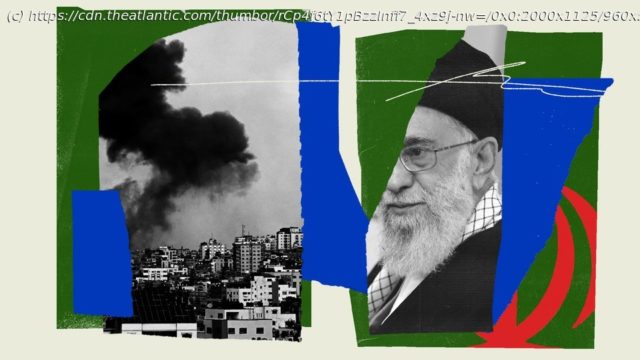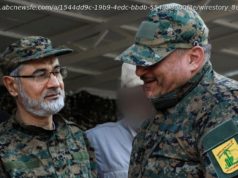Tehran is exploiting a conflict left to fester for too long.
The October 7 attacks on Israel by the Palestinian terror groups Hamas and Palestinian Islamic Jihad are being compared to 9/11 and Pearl Harbor. In fact, with more than 600 Israelis dead at the time of this writing, the proportional death toll is several times higher than that of 9/11, and the factor of surprise is arguably greater than at Pearl Harbor.
But 9/11 and Pearl Harbor weren’t just tragic attacks. They were casus belli for seismic wars. Israel’s prime minister, Benjamin Netanyahu, has declared his country to be heading into “a long and grueling war.” The air attacks he ordered in Gaza have already resulted in hundreds of Palestinian casualties. Will October 7 also lead to a broader conflagration in the region? Most important, can Israel rightly consider itself to be engaged in a shadow conflict with Iran?
Many commentators scoff at bringing Iran into an analysis of Israel’s conflict with the Palestinians. The sentiment is understandable. Some Beltway pundits name-drop Iran primarily to drive their own agendas. And the Israeli-Palestinian conflict is not primarily about Iran: It is rooted in Israel’s decades-long occupation of Palestinian territories, its brutal siege of the Gaza Strip, and its deprivation of dignity to millions of Palestinians under its rule.
Nevertheless, Iran has meddled enough in internal Arab politics that no proper analysis of October 7 can ignore its role. Hamas has occasionally gotten some cash and political support from countries such as Turkey and Qatar. But Turkey has extensive security relations with Israel, and Qatar has previously acted as a mediator with Israel and officially stands for the two-state solution. Only one state in the world doesn’t just give Hamas money but also lends significant military and political support. It is also the only state in the world still promising to fight Israel to total destruction: the Islamic Republic of Iran.
More important than material support, Tehran offers Hamas membership in an anti-Israel club with forces arrayed across the region. The Axis of Resistance counts the membership of Houthis in Yemen, Hezbollah in Lebanon (right on Israel’s northern borders), and various Iraqi and Syrian militias. As others have pointed out, Tehran’s arming of these forces with its advanced missile technology has changed the face of warfare in the region. The Islamic Revolutionary Guard Corps, the militia that now holds much of the economic and political power in Iran, coordinates all of these forces via its external operations wing, the Quds Force, whose footprint extends over the region and to places as far away as Paraguay and the Central African Republic.
Does all of this mean that Iran had a direct hand in planning the October 7 attacks? A White House official has concluded that it’s “too early” to make such claims. But senior members of Hamas and Hezbollah have suggested that IRGC officials gave the green light for the assault at a meeting in Beirut last Monday. The operation, whatever its details, must have taken months of preparation, and Hamas would almost certainly not simply surprise Tehran with something on this scale. Some coordination seems the very minimum. Of the analysts saying so, not all are your usual D.






